Pretty Things - Interview
by Lisa Torem
published: 25 / 8 / 2015
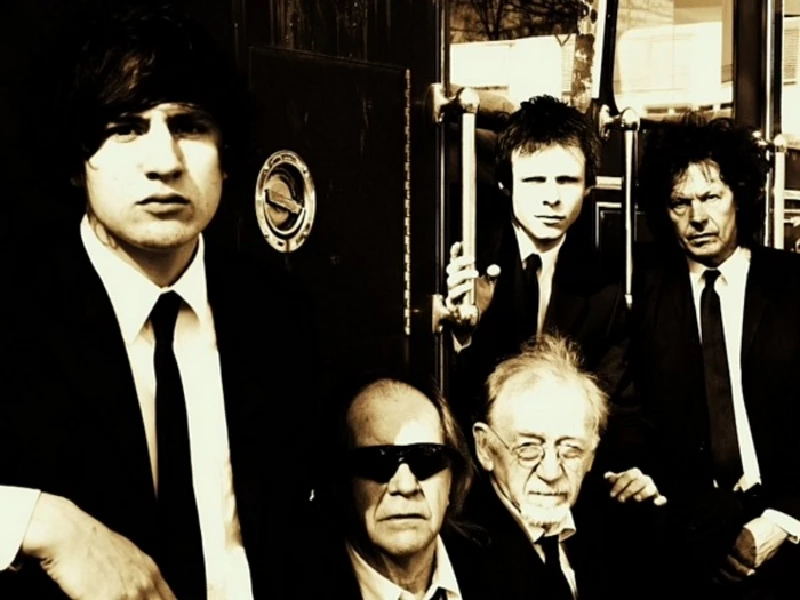
intro
Lisa Torem speaks to Phil May from legendary 60's group the Pretty Things about his band's history of over fifty years and their new album ‘The Sweet Pretty Things (Are in Bed Now, Of Course…)’
Lead vocalist and primary songwriter, Phil May, and guitarist Dick Taylor co-created the Pretty Things in London in 1963. Prior to that time, Taylor had been working with future Rolling Stones’ musicians in Little Boy Blue and the Blue Boys, but when he and May met they recognized that they shared a similar musical vision. They charted only five years later with the fairly straight-ahead ‘Don’t Bring Me Down,’ and ‘Rosalyn’, but were then swept into the insatiable arms of the psychedelic youth culture of the hippie era. Their musical tastes shifted and they developed in 1968 their signature, conceptual and experimental piece, ‘S.F. Sorrow’, a rock opera, from which many claim the Who’s Pete Townshend drew major inspiration ‘Parachute’ would be declared ‘Album of The Year’ by ‘Rolling Stone’ magazine in 1970. Dick Taylor did not appear on this release and a number of other line-up changes followed, before Taylor returned six years later. The Pretties are currently touring Europe and have just released a brand new album, ‘The Sweet Pretty Things (Are in Bed Now, Of Course…)’ ,and an impressive box set, ‘Bouquets from a Cloudy Sky’. In this interview, Phil May sets the record straight about their history and talks about reaching the younger generation with the Pretties’ vast catalogue. PB: Let’s talk about your early relationship with Dick Taylor, who had performed with members of the Rolling Stones before forming the Pretty Things with you. PM: To be honest, it was Dick’s vision because I was convinced I was going to paint and also I didn’t have a kind of real musical background. Lots of people had said, “Oh, I’ll give you two or three years,” and it was a surprise to me initially when we lasted as long as we did. In fact, after we had done seven or eight records and we’d had the screaming girls, the girls with scissors who’d give us hair cuts, and we’d be chased down the streets and locked in hotel rooms - we couldn’t get out because of the screamers - I went back to my tutor, who’d then moved to Central School of Art, and said, “Look, I kind of want to come back and paint.” He said, “You’re mad. You’re travelling the world. Just take a sketchbook with you. Why come and sit in a life class in London when you’re travelling all over the place? An artist can’t live in a bubble. You’ve got to fill your life up with experiences. So go back on the road, carry on playing and in three or four years’ time…” “I am head of the department now - you can just walk in here anytime and pick out paintbrushes and pencils and you’re in. Go for it kid and this is your home if you want it.” And fifty odd years later, I’m still doing it. And, mind you, I’ve always painted. I’ve done the cover of our new album and I did ‘S.F. Sorrow’ as well. So it wasn’t wasted (Laughs). PB: ‘S.F. Sorrow’ is considered by many fans and critics to be the first rock opera, yet it didn’t receive the acclaim that it should have. PM: There were lots of reasons for that. We got stitched up really badly by EMI and Tamla Motown. It was a tryst that they had where Steve O’Rourke (Both the Pretty Things and Pink Floyd’s then manager –Ed) was looking for a deal for Pink Floyd, and he asked a friend who was also working for the Bryan Morrison Agency to check out deals for the Pretty Things, but what we didn’t realize was that everywhere he went, there was a phone call, saying, ‘Bring Berry Gordy’ and he eventually got somebody and said, “The Pretty Things is a white band from London. What does Tamla want then?” So apparently the deal that went behind our back was, if EMI wanted to keep releasing the Tamla (subsidiary of EMI -Ed) stuff, we were the bargaining chip. They had a lot of hang-ups - they had these rounded top covers, for example, which turned out to be an absolute marketing disaster because amongst square covers, when you flip through the records, the Tamla Motown records disappear between two normal square records. They were not selling. People couldn’t even find them in a rack of records. That was disaster number one. So Tamla Motown relaunched it as one of the first releases on a crossover label between Tamla and EMI called Rare Earth. Motown had that album fourteen months before ‘Tommy’ came out in the States. It was eventually released two months after ‘Tommy’. We got slaughtered, absolutely murdered. Steve said, “You have no idea who this band is.” He’d had tapes of ‘S.F. Sorrow’ and it had been out a year in England. The music was well known and he couldn’t understand why EMI - this is before we knew about the launch of their crossover thing – had made us part of that scheme. Incidentally, Tamla refused to ever publish or supply EMI with any figures of what we did on both records, and that’s why we got out of EMI because it was their responsibility and I suppose they just lost their nerve. They didn’t want to take them on. We ended up suing EMI. Nobody had any idea whether it was millions or ten bob that they owed us - The point being that they owned our worldwide rights and they had to defend their artists if they were in a secondary deal. That’s all water under the bridge, but it still hurts. I think ‘S.F. Sorrow ‘is now getting the recognition it deserves, but it has taken a long time. It’s in the American national psyche that ‘S.F. Sorrow’ was a copy of ‘Tommy’. PB: Included in your new box set, ‘Bouquets from a Cloudy Sky’, are copies of official documents of the court trial so, hopefully, people will understand the story more clearly. PM: Yes, we tried to give as much history as we could without being boring. It’s damaging to dwell on these things. Life is full of them, but I must admit and I’ve been asked, “What happened with ‘S.F Sorrow’ and why on earth did we bother getting back with EMI and making ‘Parachute’?” Hadn’t we learned our lesson? Were we just stubborn? Obviously it knocked the wind out of our sails and we gathered ourselves again and made another great album. When I think about it now, I think, my God, that was courage (Laughs) because we’d been hit by Muhammad Ali and then by Tyson and then we still came back in the ring. PB: On a more contemporary note, many of today’s fans find themselves so attracted to 1960s-1970s music, and what they call ‘psychedelia’ now. You had some drug references in your titles: ‘LSD’ and ‘Tripping’. Some bands were getting banned. Was this ever a concern? PM: ‘LSD’ was banned. The BBC banned it. What we did was, we put pounds, shillings and pence in the title, which in British money was ‘£SD’. There was a pound sign, a pence sign and a shilling sign, and we thought we’ll never get away with that. We did for a bit. The BBC played it and suddenly there was this huge article in one of the papers from the pharmaceutical society of Britain, saying that we were promoting a very dangerous drug and that we should be ashamed of ourselves and then, of course, the BBC picked up on it and it was banned. I think it’s one of the worst things you can do, if you don’t talk about it. You can’t just bury shit. PB: In other words, it’s important to have a dialogue when something is actually happening. PM: And when you’re taking it, and I wasn’t going to lie. I hate when I hear these people interviewed, people of my generation, and they say, “No, no,” and I say, “Hang on. You were doing it. Especially that Clinton thing.” It makes me so mad because it’s rubbish. It was part of the culture and I can honestly say that the visual and word images that make ‘S.F.Sorrow’ what it is would never have happened if I hadn’t gone to the gates of dawn and opened them. It opened the world to me. It was just fantastic and as a lyricist, the visualization - it all came from that. PB: Speaking of your original music, the Pretty Things developed a reputation for really strong harmonies. So, being a chief songwriter, were you thinking about the arrangements as you wrote the lyrics? Did you deliberately write prose that would be singable? PM: I was a great believer in picking words out that nobody had ever put in a song because it made the meter. Something like ‘Singapore Silk Torpedo’ from ‘Silk Torpedo’ is almost unspeakable, let alone singable, as a five-part harmony and that’s what gave it that special quality. I write prose in a lot of cases, things like ‘Cries from the Midnight Circus’ from ‘Parachute’ I write almost in a prose sense, and then in that case, Wally Waller (guitar - Ed) came up with a riff – I sing the riff—the meter starts to leap out and “Hear me, Hear me” that’s a great harmony line because you can really deliver it. I’m totally conscious of all that and, to me, that was important when we got Jon Povey (organ, percussion) and Wally involved because then there was another colour in our palette to paint with musically. PB: In the 1990s, you recorded ‘Chicago Blues Tapes 1991’ and ‘Wine, Women, Whiskey’ in Chicago and, of course, the Pretty Things was named after a 1955 Willie Dixon song. Why at that time in your career did you choose to revisit the blues? Will you do it again? PM: We do an unplugged gig, Dick, Frank Holland (rhythm guitar -Ed) and I. We started off doing totally blues but when people come to see us they like a bit of ‘S.F. Sorrow.’ They like a bit of a moaner, but as a three-piece, we do a different version. I think ‘S.F.Sorrow’ has got blues in it. You can take the Pretties out of the blues, but we will always be the blues. We have it in our soul. So whether we’re exploring the country of psychedelia or stadium rock or whatever areas we visited, we’ve always had that with us. It’s been our compass. PB: It’s been seven years since your album, ‘Balboa Island’ and in the booklet it says that the influences on ‘The Sweet Pretty Things (Are in Bed Now, Of Course…)’came from all directions. Can you elaborate? PM: A lot of things were personal, just things that were happening to the band. As you evolve musically, it isn’t the surface. A lot of it is down under; undercurrents, undertows and I think people develop like that anyway, not just in music. Artists and painters certainly do. It’s a bit like Picasso. I was actually shocked because I loved Picasso’s work in the ‘60s, being an art student. I hadn’t seen a lot of his drawings, and I was in the Guggenheim in New York and they had an exhibition of these very, very early life drawings with pencil and it was like Da Vinci. What people don’t realize is, he has all that noise. If he chooses to paint a woman with three noses, he has total control over what that woman’s face looks like and it’s almost like what he doesn’t say because he knows it already. That makes the fresh painting. Does that make any sense? PB: Yes. So you had all these influences but maybe some of them were subliminal or came about in an organic way? PM: Yes. When we pressed the button again they were all bubbling away, waiting to be brought into the cart. When we started out last year things weren’t going well , picking out material for concerts and that sort of thing, and the last thing on my mind was a studio album and halfway through it, Mark St. John (The Pretty Things present manager – Ed)) said, “Why don’t we just sit here?” and I said, “Yeah, why don’t we?” So we had a couple of rehearsals, played some stuff we all had in our heads bubbling away, and everywhere we were going the young kids in the audience were digging the psychedelic. It was part of our heartbeat, I suppose, and so a lot of people said to me, “This is really a psychedelic album.” I’m thinking “Does that mean we are just churning out ‘Son of S.F.Sorrow’?” and they said, “No, no, it feels as fresh as a young band’s album. It’s got as much energy.” It was great that they said that. We are an old band. To some extent, you wonder if people are thinking, “Oh, my God, they’ve made another album. Why don’t they lie down and forget about it?” Life can be cruel in that sense. Secretly, I thought that maybe the world had had enough of Pretty Things albums. PB: Or maybe not quite enough. On YouTube, an American fan that just discovered ‘Parachute’ commented that Americans didn’t get enough exposure to the Pretty Things. PM: That was part of the problem with ‘S.F.Sorrow’ and other albums of that period because we were denied by the two record companies and we never got there until much, much later. There was a whole period of our lives that the American people never saw. They’ve got the records and certainly, when we went to Chicago, we met a lot of fans and they got it, but they didn’t see us. PB: There is quite a bit of collaboration on the new album. PM: One of the reasons why the album came about was because there we were working on, Dick, and to some extent, Frank and mine and Wally and John and Skip and all of those peoples’ box history, live in a box. Jack Greenwood (Pretty Things current drummer–Ed)) and George Perez (current bass player –Ed) had been, incredibly, since they were sixteen, pounding all of these great songs that these people had written and created and given their lifeblood to play them: ‘S.F.Sorrow’, ‘Parachute’, all of that stuff, and yet they weren’t represented on things of their own so now Jack and George really have a Pretty Things album that is theirs. It was very important to us because we were having this feast-in-a takeaway box and Jack and George, none of their meals were in it. When the pizza boy delivered again, it was a five-way-split pizza of the working band. PB: ‘You Took Me by Surprise’, which appears on it, is a Sky Saxon cover. Was he an influence? PM: Not really an influence, but there was a kind of a parallel existence, especially when I see some of the footage. I do a double take. Oh. I didn’t know we did that show. PB: You play blues harp, which brings a lot of colour to your songs and you’ve been quite prolific over the years. What’s your process for writing? Has it changed over the years? PM: There aren’t any rules. Dick might send me a kind of riff that he likes or Fran, by email or whatever, and I’ll play it and I might go in the kitchen and wash up. I wait for the riff to suggest to me, words and phrases and once I get one phrase that I can kind of hang my hat on, like, ‘Living in My Skin’ on ‘Balboa Island’, I’m off. I’ve got it. Once I’ve got the breakthrough, it tends to fall into place. Sometimes you get halfway through and get stuck, but generally it’s maybe a day or two, just letting it ferment. Also, I wanted a marriage of either Dick or Frank. Sometimes Dick and I will sit around with a couple of guitars in a room and it works that way. And sometimes I’ll come up with a line and say, “I’ve really got this song in me.” Play me something back if I give you this line. Get a couple of chords and let’s see where we go with it.” There is the Robert Johnson thing on the new album. I was given a whole library of blues stuff from Catfish Records and there was this little riff. It was about five or ten seconds on the front of this record, and I went through the whole thing to find it again. It can be another song as well. You know what it’s like with the blues. In some ways, there are only eight blues songs and they’re fast, slow, men, women, death and life. There’s not a lot you can do with three or four chords, speed, tempo. It’s almost the same song, sung from a man’s point of view or it’s about a train wreck, not a car wreck, but it’s a blues song. So I thought, somewhere this riff would be a song, but I couldn’t find it at first. I said to Frank, “How about this?” and it became ‘The Ode to Robert Johnson.’ PB: You unfortunately had a health scare recently. PM: My lovely cigarettes. I loved them. It nearly killed me but I haven’t had one for seven or eight months and we’re back on the road. First of all, we weren’t sure if we’d get back on the road at all and then you realize that you want to play. You’ve got to play and it’s like flying with me. We really had a dodgy landing in Hamburg and I didn’t want to fly again, but I kind of had to make a decision - if I wanted to work, I had to get on an airplane. PB: How did you fans react when they heard about your illness? PM: They wrote amazing letters. Talk about tough love. “You dare die.” “What would we do without your music?” “My dad died last year and now if you die I’m really going to be finished”, “You can’t take away Pretties’ music. You don’t have a right to.” It wasn’t like, “I really hope you’re feeling better.” It was like, “You can’t die, you bastard.” There were letters written in kids’ crayons. It was really touching. It took my breath away really. PB: It’s wonderful that you’re still satisfying your fans and that you beat your illness. Your relationship with Dick Taylor has survived line-up changes and label disputes and lasted fifty years. You’ve kept your material alive and thriving. Only a handful of bands can claim that kind of continuity. How do you account for that? PM: I don’t know. We’re asked that a lot really and we are so different and we’ve always lived a completely different life from each other. We only see each other on the stage or travelling to concerts. I kind of feel, for me, and I don’t know what Dick would say, but I feel that if I play guitar, Dick plays the guitar I play, and if Dick could sing, I would be the voice that would come out of his body. It’s almost symbiotic. I’ve been in jams where we’ve gone onstage and not knowing particularly what the other musicians are going to do, but if we’re together I know exactly where he’s going with the next change and he does for me, too. I’d be on the stage with Dick anywhere because we just have that kind of understanding and I also think that Dick, like me, has always been honourable. We’ve never sold out. It’s just too important, and so therefore it you’re in the trenches with somebody you want to know that they have integrity. PB: Where are you touring this year? PM: I’m leaving tonight to join the band in Dover and we’re on our way to a big festival in Prague, but it’s so far away, so we’re playing Mannheim on the way and then we will do the festival and because it’s such a long way, on the way back—we played last year in a really great club in Berlin called the Bassy—and we’re going back there. Then we’ve got some Spanish Festivals and we’ve got a big one on August 1st, a German Festival. It’s mainly Europe. We’d love to go back to America, but it’s so difficult logistically to tour there. PB: What do you see happening in the next five years? I think it will be year by year. Dick and I both said that the only thing that would stop us would be health. That would be the only thing we could do to unhinge it. The worst thing about playing is not the hour and a half, two hours on satge, it’s the travel. We will be doing about 1,600 kilometers from here, my house to the festival in the Czech Republic. It’s going to be seven or eight hours travelling a day over a five-day period. And you don’t do it in a Rolls Royce because we’ve got out gear with us because we don’t want to arrive at a gig without our equipment. We’ve done it before; we used to have two vehicles. It’s crazy. We’d be sitting around about four or five hours. We’d get there first and because the equipment wasn’t there we couldn’t do anything. It’s good that we have the stuff when we arrive and we can set up. PB: What non-musical things are you doing these days? I’m writing a book. It’s plowing on and all I’m doing is that when I find an interesting subject I write it down. When I do interviews, journalists say, “I hope this is going down somewhere. Are you going to develop this?” And my kids started asking questions. And for me, initially, I’ve lived it. I don’t need to write about it. I’ve done it, but I have changed my mind about that now When I think of something and it drags me there, I try and write about it. I’m going to spend two or three days in that place and I’m not going to be bored. It’s going to interest me again. Then I write it down and send it to Mark, my manager, and my daughter, just to check it out. If it won’t be a book, it will be for the kids to decide what they want to do with it. PB: Thank you.
Band Links:-
https://www.facebook.com/pages/The-Pretty-Things/115515605226http://www.theprettythings.com/
http://en.wikipedia.org/wiki/The_Pretty_Things
Picture Gallery:-
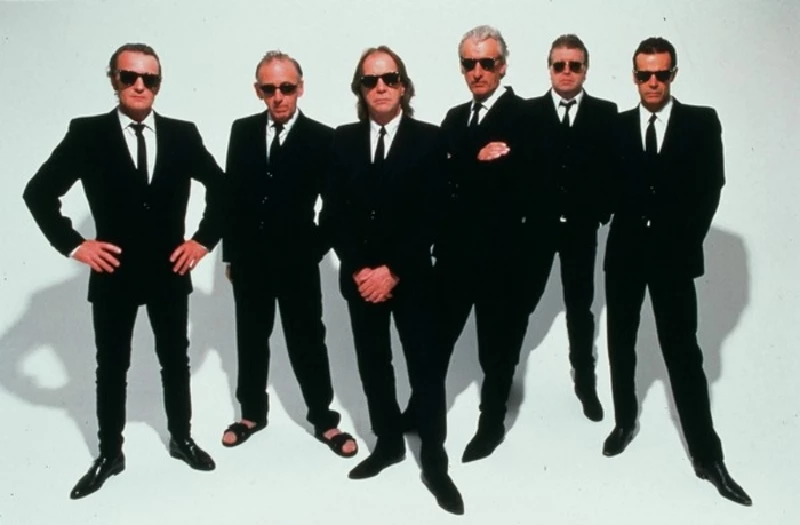
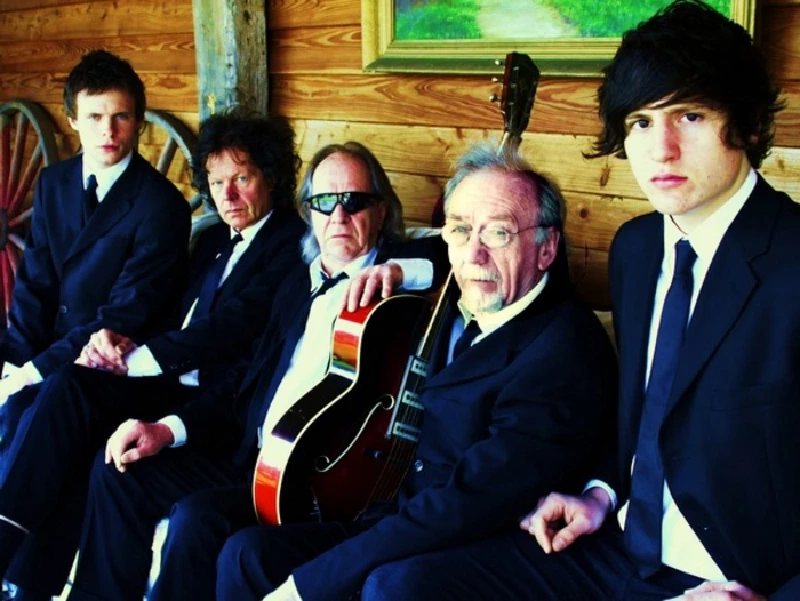
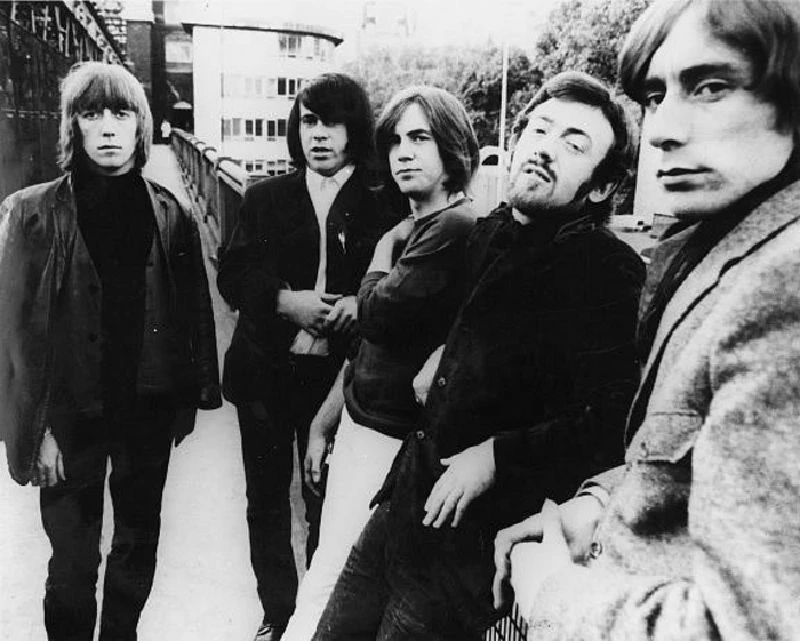

interviews |
|
Interview (2015) |
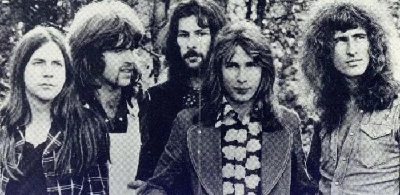
|
| Mark St John, the former drummer with 60's act the Pretty Things, talks to Nick Dent-Robinson about the group's influence and notoriety |
profiles |
|
Profile (2015) |
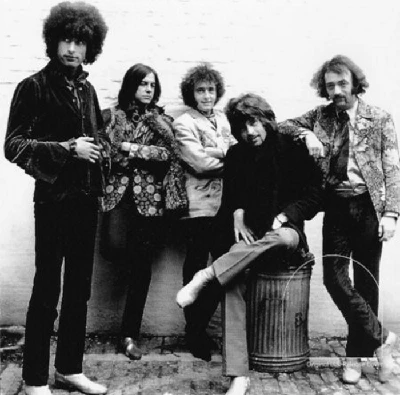
|
| Lisa Torem finds that several new reissues and remasters by 60's act the Pretty Things speaks volumes about their versatility and progressive attitude towards rock |
reviews |
|
The Sweet Pretty Things (Are in Bed Now, Of Course…) (2015) |
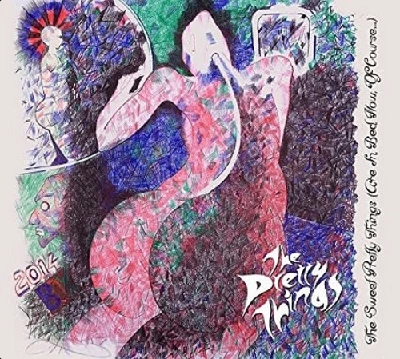
|
| Stunning first album in seven years from the Pretty Things, who, after an over fifty year career, sound as contemporary and cohesive as ever |
| Bouquets from a Cloudy Sky (2015) |
most viewed articles
current edition
Carl Ewens - David Bowie 1964 to 1982 On Track: Every Album, Every SongArmory Show - Interview with Richard Jobson
Colin Blunstone - Thalia Hall, Chicago, 16/7/2025
Bathers - Photoscapes 1
Visor Fest - Valencia, Spain, 26/9/2025...27/9/2025
John McKay - Interview
Editorial - July 2025
Sir Tim Rice - Interview
Bathers - Photoscapes 2
Billie Eilish - O2 Arena, London, 10/7/2025
previous editions
Heavenly - P.U.N.K. Girl EPManic Street Preachers - (Gig of a Lifetime) Millennium Stadium, Cardiff, December 1999
Oasis - Oasis, Earl's Court, London, 1995
Beautiful South - Ten Songs That Made Me Love...
Trudie Myerscough-Harris - Interview
Pixies - Ten Songs That Made Me Love...
Simon Heavisides - Destiny Stopped Screaming: The Life and Times of Adrian Borland
Doris Brendel - Interview
Paul Clerehugh - Interview
Prolapse - Interview
most viewed reviews
current edition
Amy Macdonald - Is This What You've Been Waiting For?Sick Man of Europe - The Sick Man of Europe
Phew, Erika Kobayashi,, Dieter Moebius - Radium Girls
Alice Cooper - The Revenge of Alice Cooper
Davey Woodward - Mumbo in the Jumbo
Lucy Spraggan - Other Sides of the Moon
Blueboy - 2
Cynthia Erivo - I Forgive You
Lapsley - I'm a Hurricane, I'm a Woman In Love
Philip Jeays - Victoria
Pennyblackmusic Regular Contributors
Adrian Janes
Amanda J. Window
Andrew Twambley
Anthony Dhanendran
Benjamin Howarth
Cila Warncke
Daniel Cressey
Darren Aston
Dastardly
Dave Goodwin
Denzil Watson
Dominic B. Simpson
Eoghan Lyng
Fiona Hutchings
Harry Sherriff
Helen Tipping
Jamie Rowland
John Clarkson
Julie Cruickshank
Kimberly Bright
Lisa Torem
Maarten Schiethart